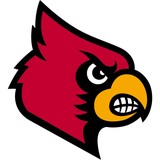
ACC Preview: Will Hokies find balance in Fuente's first season?
Replacing a legend is an uphill battle.
For Justin Fuente, who steps in for Frank Beamer at Virginia Tech, where the program's success centered around a singular identity for decades, the difficulty is readily apparent. The Hokies were an afterthought when they hired Beamer in 1986; he completed his Hall of Fame-worthy career winning 238 games and making 23 consecutive bowl appearances.
Fuente will not attempt to fill the void alone. The program displayed some ingenuity in keeping longtime defensive coordinator Bud Foster in place, so it will be up to Fuente, a former TCU offensive coordinator who orchestrated a quick turnaround as a head coach at Memphis, to invigorate an offense that has finished outside the top-50 nationally in scoring each of the past five seasons.
"There may never be another person in Virginia Tech history that means as much to that school at Coach Beamer, and we should celebrate that," Fuente said. "We also have an obligation to build on what he has done. I have an obligation to do that in the best way I know possible."
THREE KEY QUESTIONS
1. Will Fuente provide necessary balance in Year 1, or will it take more time?
When asked about his offensive philosophy at ACC Kickoff, Fuente did not give a simplistic answer ... because he does not necessarily have one.
"When we were at TCU, we had a certain skill set out there. We did what we felt like was best to have success at TCU. Same thing at Memphis. It may look a little bit different at Virginia Tech just based on who we have," Fuente said. "The first thing is we have to adapt to our talent. That's what coaching is: to give our kids the best chance to have success. We have to do our best job of tweaking it to what fits our talent."
The new Hokies headman went on to describe system staples — finding ways, even unconventional ones, to run the ball, tempo, testing opposing secondaries deep — but the message was clear: He avoids fitting Virginia Tech's talent into one specific box. His philosophy is malleable. And the Hokies do feature some offensive playmakers. Redshirt sophomore running back Travon McMillian eclipsed the 1,000-yard mark last season. Junior receiver Isaiah Ford led the ACC in receiving. Former four-star recruits Cam Phillips and Bucky Hodges return as additional targets, while the offensive line brings back four starters.
The pressing question, as usual, comes down to the quarterback position. Fuente announced that the competition will come down to senior Brenden Motley, who threw for 1,100 yards and 11 touchdowns as a part-time starter in 2015, and junior Jerod Evans. After developing the likes of Andy Dalton and Paxton Lynch into NFL products, Fuente has developed a reputation as a quarterback whisperer over the years. If he can get solid production at that position, Virginia Tech will be dangerous.
2. With defensive playmakers gone, can front seven make life easier for young secondary?
Three of the team's top defensive playmakers — Luther Maddy, Dadi Lhomme Nicolas and Deon Clarke — exhausted their eligibility and cornerback Kendall Fuller became a third-round draft pick. Those losses come on the heels of a rare sight: A Bud Foster-led defense that gave up yardage in chunks and ranked 37th nationally in defensive efficiency (S&P+ ratings).
If history serves as a guide, Foster can turn things around.
The strength of the unit, regardless of personnel losses, should be the front seven. Seniors Ken Ekanem and Woody Baron anchored a quality line in 2015 by tallying a combined 16.5 tackles for loss and the remaining depth chart is stocked with three- and four-star talent ready to fill the gaps. Middle linebacker Andrew Motuapuaka made plays all over the field for the Hokies last season and the program has recruited well to fill out the linebacking corps.
Can they cover for an oft-injured secondary that allowed too many explosive plays — or will they even need to? Senior safety Chuck Clark returns, but last season's injuries forced then-freshmen Adonis Alexander, Mook Reynolds, Terrell Edmunds and Jacque Alleyne into action, meaning Foster's secondary, if nothing else, boasts far more experience this time around.
3. Can Isaiah Ford retain his ACC receiving title?
Isaiah Ford was the only ACC receiver to eclipse the 1,000-yard mark last season, and his primary challenger (Pittsburgh's Tyler Boyd) was a second-round draft pick. Ford was able to emerge despite playing in an offense ranking 64th in passing yards and other options, particularly Hodges, warranting targets. The good news: Due to the Hokies returning so much offensive firepower, defenses will not be able to simply key in on Ford.
Still, there will be competition.
Boyd is gone, but Clemson's Mike Williams returns from injury. As perhaps the most talented receiver in the ACC, Williams could reemerge as Deshaun Watson's favorite target ... but with weapons galore (Artavis Scott, Deon Cain) the Tigers' individual numbers may not explode. Florida State's Travis Rudolph, the league's No. 2 returning wideout (916 yards), promises to lead a new-look Seminoles passing attack. Stacy Coley is the favorite target of talented Miami quarterback Brad Kaaya, while dramatic improvement from Louisville QB Lamar Jackson could lead to big numbers from Jamari Staples or James Quick. North Carolina's passing offense should keep humming. Syracuse's Steve Ishmael (570 yards) could see the biggest jump in Dino Babers' uptempo offense.
One thing seems clear at this point: After a down year in top-end receiving production — every other Power Five conference boasted at least three 1,000-yard receivers — Ford could find it difficult to retain the top spot, especially without better quarterback play in Blacksburg, but he's still among the favorites.
